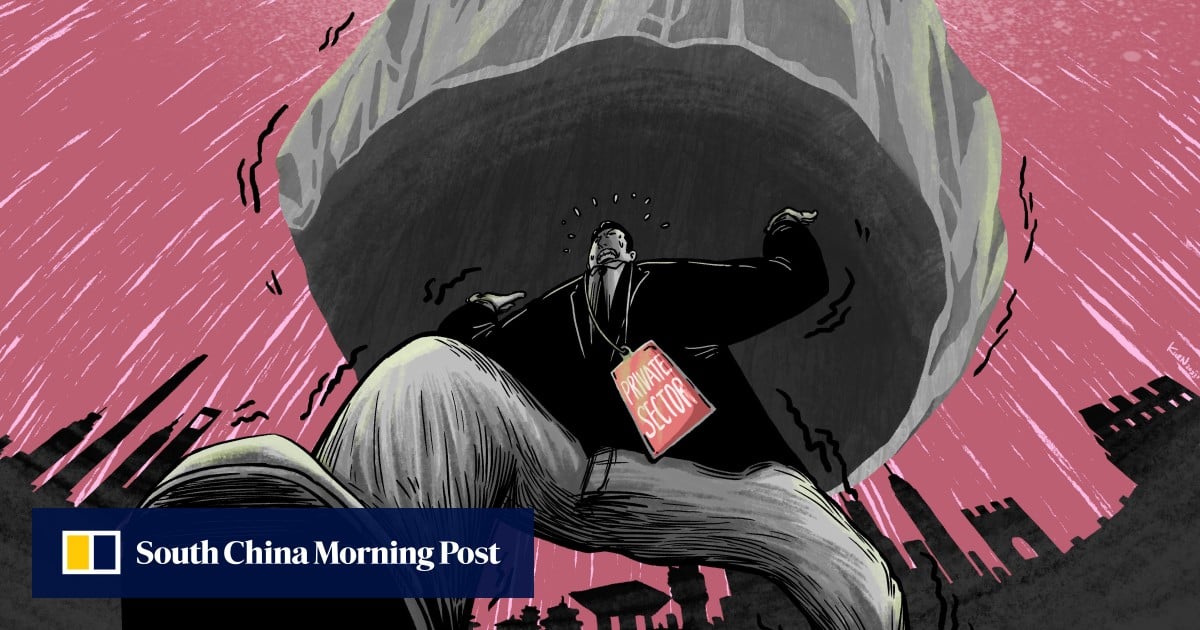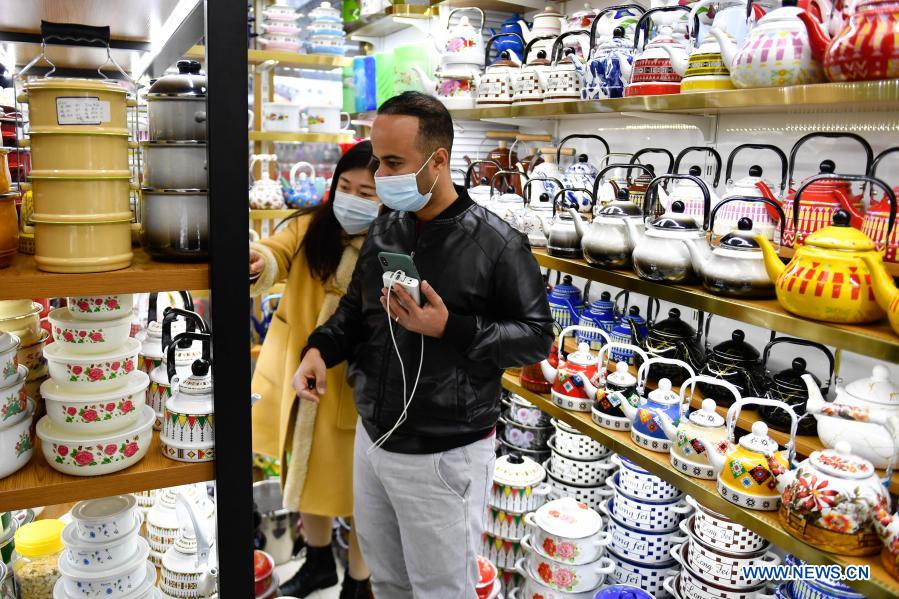
China’s ‘financially unhealthy’ small firms have a serious cash-flow problem that threatens to topple more dominoes
The critical issue ‘affects the lives of 180 million people’, weighing on nation’s economic backbone and impeding job growth, according to academy assessment. Small and micro-sized firms are considered vital to the health of China’s overall economy, but they are also the most vulnerable to its bumpy recovery.
 China’s small businesses, which are critical components of its private sector and big drivers of urban jobs, are still contending with severe payment delays and other operational difficulties, according to a recent financial health survey.
China’s small businesses, which are critical components of its private sector and big drivers of urban jobs, are still contending with severe payment delays and other operational difficulties, according to a recent financial health survey.
The findings, compiled by the Chinese Academy of Financial Inclusion at Renmin University in Beijing, were based on data collected from more than 2,300 small and micro-sized firms across the country.
In a subsequent report, the academy flagged the most pressing problems while offering suggestions for financial institutions and governments to more effectively empower small firms, boost market confidence and enhance operational resilience. The report, released on Tuesday, called attention to “the most critical cash-flow issues” for China’s small businesses, and warned that the outsized problem of mounting arrears could be “a domino that knocks over the others”.
The report, released on Tuesday, called attention to “the most critical cash-flow issues” for China’s small businesses, and warned that the outsized problem of mounting arrears could be “a domino that knocks over the others”.
China’s job pressure seen ‘worsening’ in 2024 as solutions elude workforce
The survey gauged the financial situations of such firms in terms of their daily financial management, risk prevention and capital management.
Hou Liming, a researcher with the academy, said that more than one-third of surveyed companies were “still financially unhealthy, which affects the lives of 180 million people”.
About 80 per cent of those “financially unhealthy” firms reported delays in receiving payments, and the report said that this impediment could lead to higher risks in their operations and financial conditions than it would for other companies.
“The key concern among small and low-profit businesses is their cash flow for operating activities,” Hou said.
Based on the State Taxation Administration’s definition, small and low-profit companies in China are defined as entities that pay less than 3 million yuan (US$422,000) in annual taxes, have fewer than 300 employees, and whose total assets are worth less than 50 million yuan.
Small and micro-sized firms are considered vital to the health of China’s overall economy, but authorities and economists have noted that the group is the most vulnerable to the bumpy recovery that the country is facing.
Late payments have become a chronic problem plaguing China’s private sector – considered the backbone of economic growth and job creation – especially among small suppliers or contractors of big companies and state-owned enterprises.
The issue has grown in severity to the point that the central government has launched several rounds of campaigns over the last couple of years to spur and incentivise debt repayments.
China’s three-legged race to fend off the 4 D’s of an economic apocalypse
“The survey aimed to determine whether companies could respond to hidden risks in their daily operations, and at how much they could cope with their financial needs, now and the future,” Hou said.
The report called for particular emphasis to be placed on cash-flow concerns, which it deemed the “most pressing issue” for small firms.
“Support from governments and financial institutions is needed to ease the cash-flow pressure resulting from arrears or severe delays in recoverable accounts,” it said.
Survey respondents also indicated that a lack of assets, as well as the complicated and arduous process they must undergo to obtain bank loans, were the main hindrances to financing activities.
Ren Xinglei, president of the China Association for Small & Medium Commercial Enterprises, said the challenges facing these companies reflect the demand for more diversified financial services that are specifically catered to fit their needs.
“It’s important to enhance the financial competency of these enterprises so that they can steadily get through trying times,” he added.
The report suggested that financial institutions should provide insurance products that offer strong protection, as well as credit guarantees and integrated services, to small businesses.
Also in the report, Tamas Hajba, senior adviser to the Organisation for Economic Cooperation and Development in China, noted how “almost all small enterprises in the world” have been dealing with developmental difficulties in the post-pandemic era.
“Helping small-sized companies get out of debt, by seeking financing from channels other than banks, and empowering small and micro-sized enterprises to bridge the digital divide and achieve a green transformation, are all directions that require the joint efforts of all parties,” he said.




No comments:
Post a Comment
Note: Only a member of this blog may post a comment.